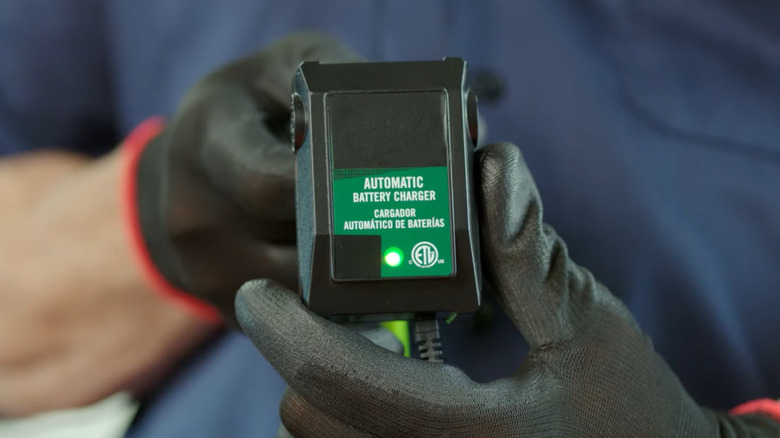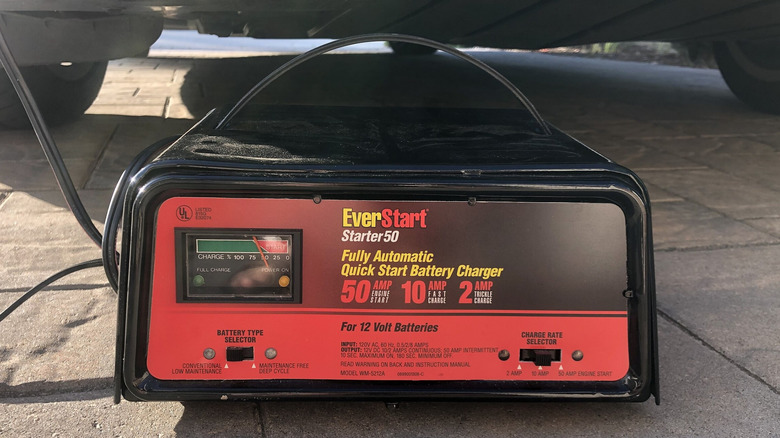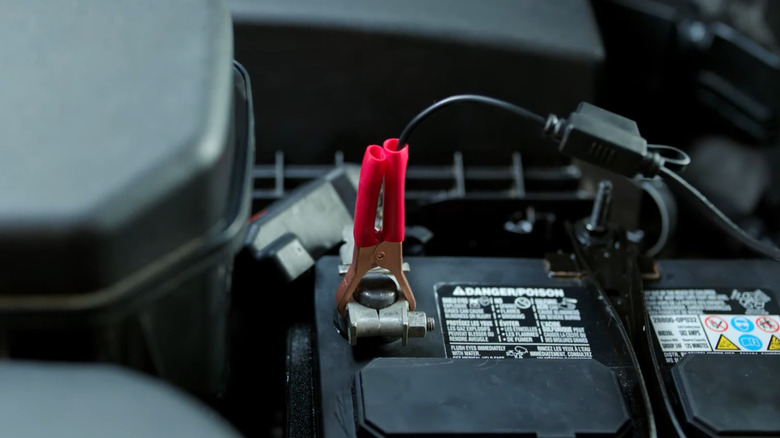How To Choose The Right Size Car Battery Charger For Your Needs
A couple of decades ago, having a dead battery usually meant pulling out jumper cables and hoping your friendly neighbor (if you didn't own a secondary car) would be kind enough to give you a jolt to get your engine started. Today, battery charging needs have become a bit more complicated. Vehicles no longer come with standard batteries, and the numerous technical terms and chargers available on the market can leave you feeling even more confused.
Therefore, picking the correct charger for your battery needs isn't just about getting the most expensive brand off the shelf. It is a little more technical and requires vehicle owners to consider more things, including the size of their battery, the purpose of the charger (quick charger or maintenance), and the charger's compatibility with the battery.
To begin, the charger for your vehicle's battery must match the battery's voltage and deliver about 10–20% of your battery's amp-hours (Ah) rating. And perhaps the most important consideration is to get the right charger for its intended use –a trickle charger will be useless for quick or full recharges. If you are looking for a charger for occasional use, a standard smart charger would be ideal.
Considerations to make when picking a car battery charger
The technology around batteries has advanced as much as the newest car on the road today. Over a decade ago, most vehicles ran on the same wet or flooded batteries. Today, modern cars feature AGM (Absorbent Glass Mat), gel, lithium-ion, and EFB (Enhanced Flooded battery). As you'd imagine, vehicles with either of these batteries would require a unique charger.
Therefore, before purchasing a charger for your vehicle's battery, there are a few considerations to keep in mind. First, check the battery's voltage. Most passenger cars use the conventional 12V battery; trucks, RVs, and commercial vehicles may have 24V batteries. Ensure the charger matches the voltage and is rated for the battery type (AGM, EFB, or lead-acid). Second, check the battery capacity. Each battery has an amp-hour rating indicating the amount of charge it can hold (usually displayed on the battery label). A rule of thumb is to choose a charger that delivers 10 to 20% of your battery's Ah rating (a 6A charger is ideal for a 6Ah battery).
Lastly, the charger output dictates its purpose. Low amp chargers (1A-10A), such as trickle chargers, are ideal for maintenance or for vehicles in long-term storage. Mid Amp (10A-20A) chargers are best for routine recharging, while High Amp (20A+) chargers are great for quick top-off and fast charging. The charger type and its intended use also matter — manual chargers need supervision, smart chargers, on the other hand, adjust rates automatically.
Charger size and specific needs
Here's the truth: You don't really need a battery charger to charge your car's battery. However, if you've set your sights on getting one, then the good news is that there are tons of chargers available for different needs. If you have a classic vehicle, motorcycle, or ATV (all-terrain vehicle) in storage that you rarely use, a trickle charger (1A-10A) would be ideal for maintaining its battery. Trickle chargers deliver low voltage in "trickles," maintaining the charge at full without overcharging. However, if you need a charger for a dead battery situation, getting a manual higher amp or fast charger (20A+) would be the best option.
The vehicle type also matters. Sedans, SUVs, trucks, and commercials don't feature the same battery. If you have a small car (sedan or hot hatch) with a 45–60Ah battery, the ideal charger would be a 6A–10A smart charger. SUVs, trucks, and commercial vehicles with a 70–100Ah battery would need a 10A–20A smart charger.
A rule of thumb is to always check the battery specs against the charger before purchasing. If you are unsure but really need a charger, your safest bet is a smart battery charger. Smart chargers are designed to adjust the charging rate based on the battery, making them a safe choice for multiple applications.


